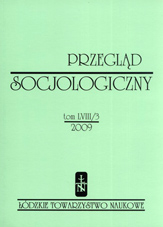Sukcesy i porażki reformy edukacji
Successes and failures of the education reform
Author(s): Marta ZahorskaSubject(s): Education
Published by: Łódzkie Towarzystwo Naukowe
Keywords: educational inequalities; education reform; sociology of education; school selection
Summary/Abstract: The education reform carried out in 1989 had very ambitious goals: improving the quality of schools, popularizing secondary and Higher Education as well as providing equal educational opportunities, especially those for rural children,. In order to achieve those goals, much has been changed in the education system: the school structure, by creating junior high schools; the process of school management, by extending the LGU competence; financing schools – by applying the rule “Money follows the student”; school programs; grading systems; career paths for teachers and rules of school operation. An important social consequence of the reform was intended to be improving the opportunities available to young people with low cultural capital. In the opinion of the representatives of critical theories, especially those representing the New Sociology of Education (B. Bernstein, M. Young, N. Keddie and colleagues), changes in school organisation cannot compensate for social differences. When observing the results of the reform on the occasion of its tenth anniversary, we can see that in spite of many spectacular successes such as popularizing secondary and Higher Education as well as improving the results of Polish students in the international PISA tests, the social educational inequalities have not been limited; They currently take other forms and are found in other segments of the school system. Junior high schools do not even out the teaching level, but preserve and even increase differences resulting from primary schools; the majority of high schools are extremely diverse in terms of level, and so are the colleges. Therefore, students from “good” families still have much a greater chance of getting to good junior high schools and high schools, as well as to colleges that give better prospects on the labour market, than their peers with a “worse” family background.
Journal: Przegląd Socjologiczny
- Issue Year: 58/2009
- Issue No: 3
- Page Range: 119-142
- Page Count: 24
- Language: Polish

